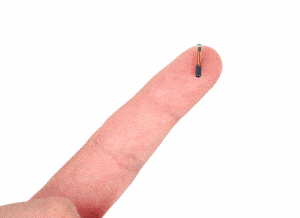 Some tech savvy companies have decided to microchip employees.
Some tech savvy companies have decided to microchip employees.
For example, an RFID* chip can speed up security access (e.g. replacing badges), enable cashless transactions, and many other tasks. And the employer can cut costs, boost productivity, track employee behavior, etc.
Of course, there are legal issues an employer must address. Here are five key things you must know before chipping your workers.
1. Voluntary. Some jurisdictions have laws that limit employee microchip implants. For example, there are states where it is illegal to require chipping. In other words, microchipping should be voluntary instead of mandatory.
2. Tracking. Some jurisdictions limit or ban tracking employees with chip implants. If it’s allowed in your jurisdiction, have full disclosure. And get written consent by participants.
3. Privacy. Besides tracking, there are other employee privacy issues you should consider.
For example, an employee might buy food at work from a cafeteria or vending machine using a chip implant. Analyzing the worker’s dietary habits might violate privacy laws. If legal, there should be full disclosure and employee consent to collection and analysis.
4. Security. Because of the privacy implications, appropriate security measures should be taken to protect collected data . And you’ll want to make sure the chip can’t be cloned or hacked (e.g. password logons).
5. Termination. Not only should it be voluntary for employees to take part in a microchip implant program but workers should be able to leave the program at any time upon request. Also, there should be chip removal upon employment termination.
If you decide to chip your employees, use a written microchip implant agreement. Get it signed by each participant.
An experienced business lawyer who knows technology and employment law can prepare a chip implant agreement for you.
Need a microchip implant agreement? Or another business contract? Set up a phone consultation with Attorney Mike Young.
* RFID = Radio Frequency Identification

